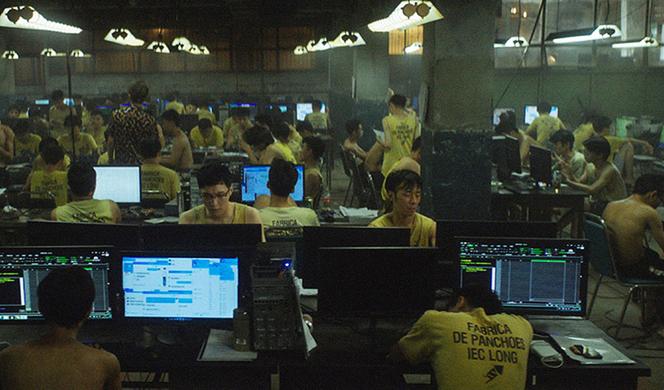

LETTER FROM BANGKOK

The summer of 2023 Chinese box-office hit No More Bets features a group of young Chinese operating from a seedy but heavily-secured compound abroad trying to trick their compatriots in China with ingenious cyber tactics. The outcome is tragic: one of their targets has been so well ensnared by a pretty girl who claims to be giving him winning tips for various online bets or investments, that he goes broke, pawns his parents' apartment and then commits suicide in front of their eyes.
In China, No More Bets has served as a public health campaign viewed and adjusted by a Chinese Tarantino. Online scams have become the number one priority for the authorities, who made countless files available to producers. Like the young programmer who is the film's hero, the "little hands" carrying out these frauds are themselves victims. Their passports have been confiscated and those who fail to meet their targets are punished. Attempting to flee exposes them to atrocious torture, or worse, at the hands of ruthless Chinese mobsters.
The lawless zone from which these 2.0 gangsters operate is a fictitious Southeast Asian country called Canan. In the film, uniforms bear the Khmer and Myanmar alphabets. The natives join hands in greeting, just as the Thais do. In September, Cambodia and Myanmar, followed by Thailand in November, lodged official protests with the Chinese authorities against this "stigmatization," likely to "scare off potential Chinese tourists." Phnom Penh and Naypyidaw even banned the distribution of No More Bets. It's a shame.
The reality is that Southeast Asia is plagued by this new form of Chinese organized crime. Fleeing police campaigns in China, the online fraud mafia has found an ideal ecosystem in these notoriously corrupt countries, where everything can be bought, especially the police. It has also enthusiastically integrated itself into China's "Belt and Road Initiative," the great economic expansion project of Chinese President Xi Jinping, particularly during the pandemic when he needed promoters most.
Among the presumed or proven "godfathers" of these mafia-style businesses are Chinese entrepreneurs highly placed in the representative bodies of the Chinese diaspora co-opted by Beijing. They are celebrated as generous benefactors in the adopted countries for which they have acquired nationality. For example, the Chinese Zhao Wei, founder of the Golden Triangle special economic zone in Laos on the Thai border, was awarded the courage medal by the Laotian government in 2022 for his "contribution to the defense of public order."
You have 60% of this article left to read. The rest is for subscribers only.
